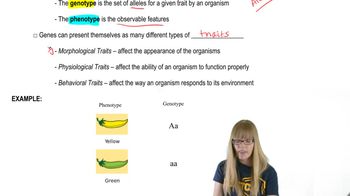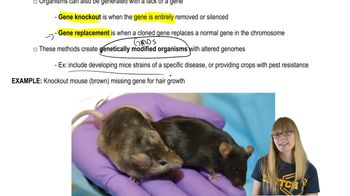Here are the essential concepts you must grasp in order to answer the question correctly.
Population Genetics
Population genetics is the study of genetic variation within populations and involves the examination of allele frequency changes under the influence of evolutionary processes such as natural selection, genetic drift, and gene flow. Understanding population genetics is crucial for evaluating how gene therapy might impact genetic diversity and evolutionary trajectories in human populations.
Recommended video:
Somatic vs. Germ-Line Gene Therapy
Somatic gene therapy involves altering the genes in somatic (non-reproductive) cells, affecting only the individual treated and not passed to future generations. In contrast, germ-line gene therapy modifies the genes in germ cells (sperm or eggs), which can be inherited by offspring. This distinction is vital for assessing the long-term evolutionary implications of gene therapy on human populations.
Recommended video:
Transgenic Organisms and Gene Therapy
Evolutionary Impact of Gene Therapy
The evolutionary impact of gene therapy refers to how interventions in genetic disorders might influence the genetic makeup of future generations. Critics argue that germ-line modifications could lead to unintended consequences on human evolution, such as altering natural selection pressures. Evaluating these potential impacts requires a deep understanding of evolutionary theory and genetic principles.
Recommended video:
Transgenic Organisms and Gene Therapy
 Verified step by step guidance
Verified step by step guidance Verified video answer for a similar problem:
Verified video answer for a similar problem:

